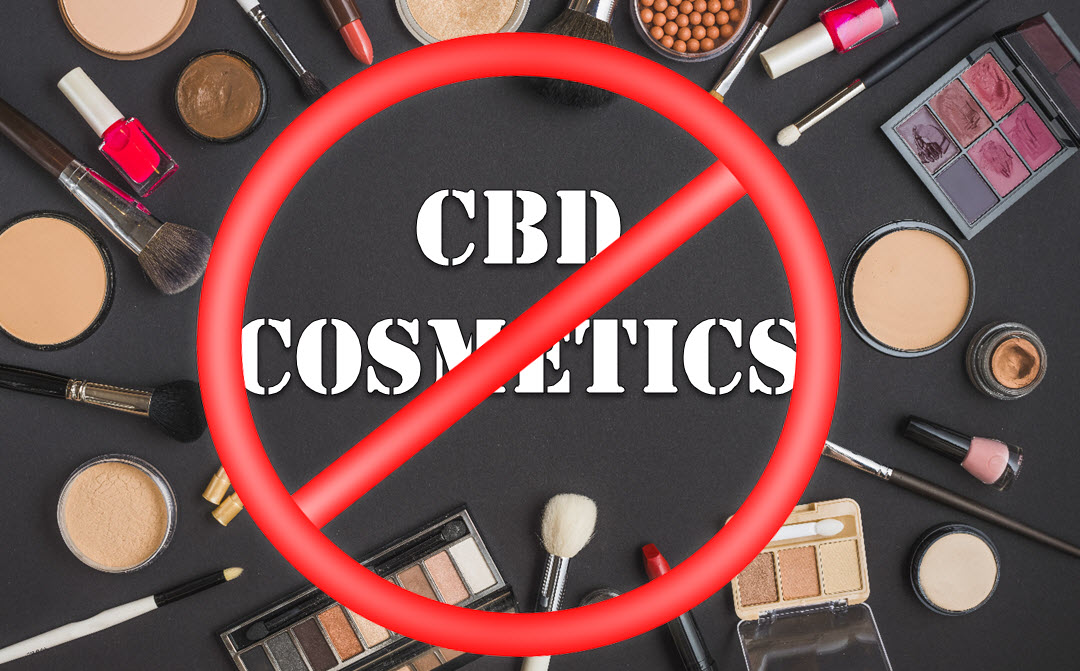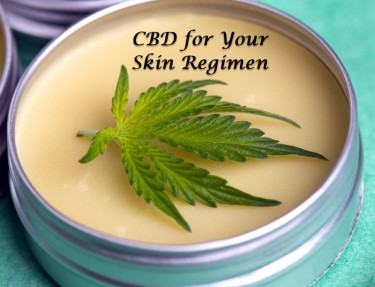
Why Has California Silently Banned CBD Cosmetics?
Cannabidiol (CBD) in cosmetics has caused quite a stir in recent years. Although CBD is widely consumed in foods and beverages, its use in skin products, including cosmetics, has significant benefits, particularly in combating inflammation and common skin problems.
As a result, customers are demanding more CBD cosmetics and brands have responded. In fact, the CBD cosmetics market is expected to grow by as much as $ 3 billion from 2020 to 2024. However, the state of California isn’t a huge fan of this market. As early as 2018, the California Department of Health (CDPH) published an FAQ stating that CBD from hemp cannot be added to any consumer product, be it dietary supplements, food or beverages. Its stance on cosmetics has been vague at best, but the state still has authority over the cosmetics industry under Sherman’s Law.
By January 2021, the CDPH quietly published a new FAQ stating that CBD is considered an adulterant in both cosmetics and food. The new FAQ read: “California’s Sherman Food and Drug Law provides that all foods (including beverages and pet foods) are adulterated if they contain or contain an unapproved food additive, and that any cosmetic (including lotion and ointment) is adulterated if it contains or contains toxic or harmful substances which may damage it under the conditions of use prescribed in the labeling or advertising of the cosmetic or under normal or customary conditions of use.
Peeled hemp seeds, hemp seed protein, and hemp seed oil are the only ingredients of hemp that are GRAS and allowed in food. CBD from hemp or any other source is not currently allowed in any of the items regulated by the Food and Drug Branch of the California Department of Health, including foods, medicines, and cosmetics.
Soon after, other agencies, including the Los Angeles County Department of Public Health, released their own statements, making it clear that they supported the CDPH’s position on the matter.
In fact, the CDPH waived the standard process and banned hemp consumables. And their new law makes it even stricter than the FDA’s on CBD cosmetics.
Why California?
California alone is home to the largest legal cannabis market in the world, but their stance on hemp is so backward.
It was back in 2018 when the Farm Bill was passed, which should have allowed numerous hemp-based CBD companies to grow, particularly in California. But there seem to be major barriers preventing them from growing, and that’s largely due to the California Department of Health. They want to enforce their belief that retailing CBD as a food additive or dietary supplement is against the law. Of course, those in the hemp industry think this is the wrong move, but without further corrections from the CDPH, the damage will continue.
Because of the CDPH, sales of CBD-infused products in California have been extremely low and in some cases some hemp manufacturers and retailers have been haunted by local enforcement. It didn’t matter whether the CBD cosmetics were packaged in branded plastic or in 3.5 gram bags, the legal tone was set and CBD in skin products was a no-go.
The pandemic is causing serious economic problems and it is up to mature markets like California to drive the rest of the industry and the country out of its dire state. Local governments need new sources of income for their households and millions of Californians are still unemployed.
The solution? The hemp industry that has everything we could need to boost the economy. But this is not possible without regulatory clarity. What the CDPH did only continues to confuse consumers as it consistently blocks growth opportunities in the hemp industry. Other states like Florida, Texas, and Ohio have already passed laws that clearly allow the retail sale of hemp-derived CBD.
Here’s what the CDPH really needs to understand: First, a regulated hemp market is an entirely new industry, meaning it will take years, maybe decades, to build. The hemp industry has already got a foot in the door, clearly with the demand for CBD cosmetics and many other hemp-based CBD consumables. While other industries will struggle to get their business pace again with the pandemic, the hemp industry already has the capacity to create new jobs in a variety of specialties, including retail, cultivation, manufacturing, testing and distribution among others.
The Value of the CBD Cosmetics Market
California is completely missing out on the potential gains from the CBD-infused cosmetics industry. This market is projected to reach up to $ 1.7 billion by 2025, according to a report by Million Insights. They add that they see a 32.9% annual growth rate from 2019 to 2025, and they attribute the massive growth to growing awareness of the benefits of CBD on the skin.
They point to the European Union, where in 2018 it achieved a market share of 62% due to its high fatty acid content, which helps alleviate damaged and dull skin. They find that North America is already in high demand and that market accounted for 40% of the market share in 2018.
Sephora has already set up a dedicated CBD cosmetics website on their website as well as a dedicated section in their stores. Many of the major players in cosmetics, including L’Oreal, Estee Lauder, and Unilever, will soon be launching CBD products. All of this and more will kickstart the market, and California won’t reap the benefits until the CDPH wakes up.
CBD SKIN LOTIONS AND CREAMS, READ THIS …

CBD FOR SKIN CARE AND DAILY USE, READ OUR TIPS!
OR..

CBD FOR SKIN CARE AND MEN’S AFTER SHAVE WHAT YOU NEED TO KNOW!

Post a comment: